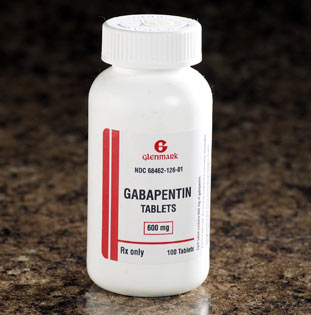Gabapentin is used to treat cases of addiction in an off-label manner. Different companies, including Parke-Davis, Greenstone, and Teva, manufacture several varieties of the generic drug. Other drugs that have been used to treat the symptoms of addiction withdrawal, for specific substances, include:
-
-
- Clondine
- Other anticonvulsants, such as Tegretol and Depakote
- Methadone and buprenorphine
- Naltrexone
-
Typical Application
Available in capsules, tablets, and as an oral liquid, dosages range from 100 mg to 800 mg. The frequency with which a dose is repeated depends on the specific dose, which is usually based on the severity of withdrawal and the client’s weight. The drug’s half-life is around 5-7 hours.
Generally, it is used during medical detox and throughout subsequent treatment modalities to support relapse prevention while clients adjust to their new sober lifestyles.
Treating Substance Abuse
According to Medscape, gabapentin can inflict users with suicidal thoughts and abrupt changes in behavior. For this reason, it should only be used under medical supervision. It can also cause elevated blood pressure, fever, sleep problems, appetite changes, and chest pain.
While it has been used to treat addictions to other substances, gabapentin is most often used to treat alcoholism — an addiction some 16.6 million adults suffered from in 2013, per the National Institute on Alcohol Abuse and Alcoholism.
During withdrawal from alcohol abuse or dependency, clients may experience anxiety, tremors, agitation, and irritability. In order to understand how gabapentin works, there must be a basic understanding of how the brain works first. Nervous system activity is partially controlled by GABA neurotransmitters. Gabapentin works by reducing activity among GABA. As a result, signals for pain, agitation, and anxiety are reduced, too.
An American Journal of Psychiatry study showed impressive results during the 16-week treatment of 150 people who were dependent on alcohol, noting better results among those who were treated with both gabapentin and naltrexone than the latter alone. TheJournal of Clinical Psychiatry reported on another study in which individuals treated for alcoholism with gabapentin showed a significant reduction in how much they drank and a greater rate of abstinence than those in the placebo group.
Gabapentin has the same calming effect on individuals who are detoxing from marijuana and benzodiazepines. Despite claims from fans of the plant-based drug, marijuana is indeed addictive. In 2012, 305,560 people checked into rehab citing cannabis as their primary drug of abuse, per the Substance Abuse and Mental Health Services Administration. One Neuropsychopharmacology study that analyzed the use of gabapentin in the treatment of marijuana addiction and withdrawal noted individuals in the gabapentin treatment group used less marijuana, had fewer withdrawal symptoms, and experienced improvements in cognitive functioning, compared to the placebo group.
Gabapentin is Also Used to Treat Alcohol Withdrawal
I am still on gabapentin. Dose is 600mg three times a day – total 1800mg in a 24 hour period. I had not had a drink “craving” since August 11, 2014 when I quit. (I did this within one week of starting gabapentin).
I did have a glass of wine at Christmas, one beer on my birthday, and one glass of wine at Easter. That’s it. I use to have 10 beers a day, and three glasses of wine or gin for bad panic attacks and generalized anxiety. So for me (not everyone) I can have that occasional drink with friends, at party or any social event – then come home and not touch the stuff and WITHOUT ANY CRAVINGS AT ALL – as I had during my 40-year binge. Still, this drug is amazing. AA never worked for me.
“I went on gabapentin for alcoholism that troubled me for 10 years when nothing including Alcoholics Anonymous barely worked. I read anecdotal information that it helped with alcoholism, went on 600mg twice daily and it was the first thing that helped me.
Now I take 1200mg twice daily and find it works great! Afterwards I read a study in the Journal of American Medicine, Gabapentin in Alcohol Dependance, 2014 that confirmed it works well in many people for cravings and binge drinking. This medicine should be further studied to confirm it works well. On this site it is obvious it helps a lot of people struggling with alcoholism which I have, along with Bipolar Disorder. I call Gabapentin my” happy pills” that also takes away my anxiety
I’ve detoxed several times. The last one was really bad. This time My Dr. put me gabapentin 300 mg. 3 times a day and Lithium. I usually suffer withdrawals for 5-7 days. I did have anxiety for two days, but I’m on day 3, no anxiety and no cravings
